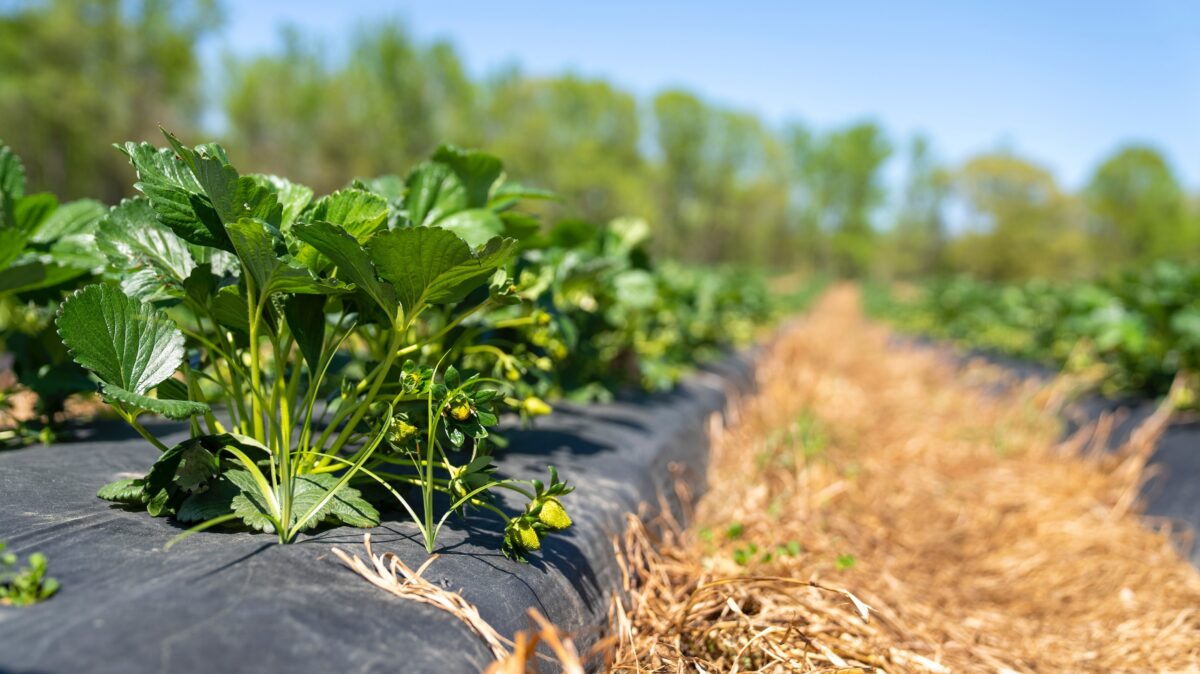Farmers and Consumers Take a Bite Out of Food Waste
Guest Author
Special Contributor to FB.org

photo credit: Mark Stebnicki, North Carolina Farm Bureau / CC0
Guest Author
Special Contributor to FB.org
By Kacie Luckett
You know that feeling when you forgot to cook the oozing veggies at the bottom of the fridge? Or how about when you are scraping the untouched food off your children’s plate? Guilty! Yes, I feel it too.
As a farmer, consumer and working mom, my life can be a little hectic. I see food waste in both the fields of my farm and at my own kitchen table. So, what do I do as a farmer and a consumer to help eliminate food waste?
On the farm, our goal is to provide high-quality food for our family and community. So, we spend time planning, scheduling and preparing to prevent food loss before it happens. If we waste food on the farm, we are also squandering time, energy and money.
Before seeds ever touch the ground, we research varieties that both grow and sell well in our climate. If seeds are not suitable for our climate, it’s a waste of time, money and effort. The varieties of crops grown must also be pleasing to our customers. From experience, I learned that no one wants to purchase a 20-pound Blue Hubbard squash to lug around the farmers’ market – and with South Louisiana’s frequent rain, they don’t grow well here, either.
Next, we put together a schedule of what to plant and when. This helps prevent an overabundance of one type of produce at a given time. Everyone loves yellow summer squash, but there are only so many of Aunt Susie’s yellow squash casseroles you can make and enjoy in a week.
Additionally, we survey our fields daily to detect problems as soon as possible. If we spot a pest problem, we can treat it quickly and directly, before it spreads and causes too much damage to a crop.
Careful planning is key to waste prevention, and prior to planting, we use techniques such as crop rotation, cover crops and companion planting to keep the soil healthy.
Cultivating dormant fields and using plastic mulch helps us manage weeds and prevent some diseases. We also rely on drip irrigation to efficiently water the crops, as Mother Nature has proven her vicious sense of humor.
Picking our produce at peak ripeness is also imperative for us to decrease waste. We harvest early in the mornings or late in the evenings In South Louisiana, the temperatures can be fierce on both our workers and our crops. By picking at cooler times of the day, we eliminate most of the “field heat.” Once harvested, we observe good handling practices and maintain cool storage temperature and other protocols for each crop. This helps to maintain quality, reduce spoilage and extend shelf life.
Our farm reaches consumers through a variety of markets: We offer a CSA, and sell at three local farmers’ markets, an online grocery store, wholesalers and restaurants, in addition to donating to local food banks. Having different avenues to move our produce helps us waste less of what’s grown on our farm. The CSA also provides an outlet for our blemished vegetables. The produce doesn’t have to look perfect and is still safe to eat.
Another distinctive part of our farm is our personal interaction with the people who buy our produce. I have the best of both worlds. I am a farmer, and I have the important job of educating our customers about my passion and their produce. I use social media, email, and face-to-face conversation to share knowledge and helpful tips. At the farmers’ market, I offer support and guidance on what we grow, how we grow it, and how consumers can make the most of the food they buy. I teach customers about using blemished fruits and veggies, and with the help of a local spice shop, I lead cooking classes. I also provide weekly recipes, storage tips, and freezing and canning instructions for the produce we grown and sell. Beyond the dinner table, I give direction for composting, recycling and replanting. I am optimistic that my guidance and tips—from recipes to replanting—will cultivate both a love and understanding of agriculture, while helping eliminate food waste along the way.
Kacie Luckett
Farm Bureau member
Top Issues
VIEW ALL